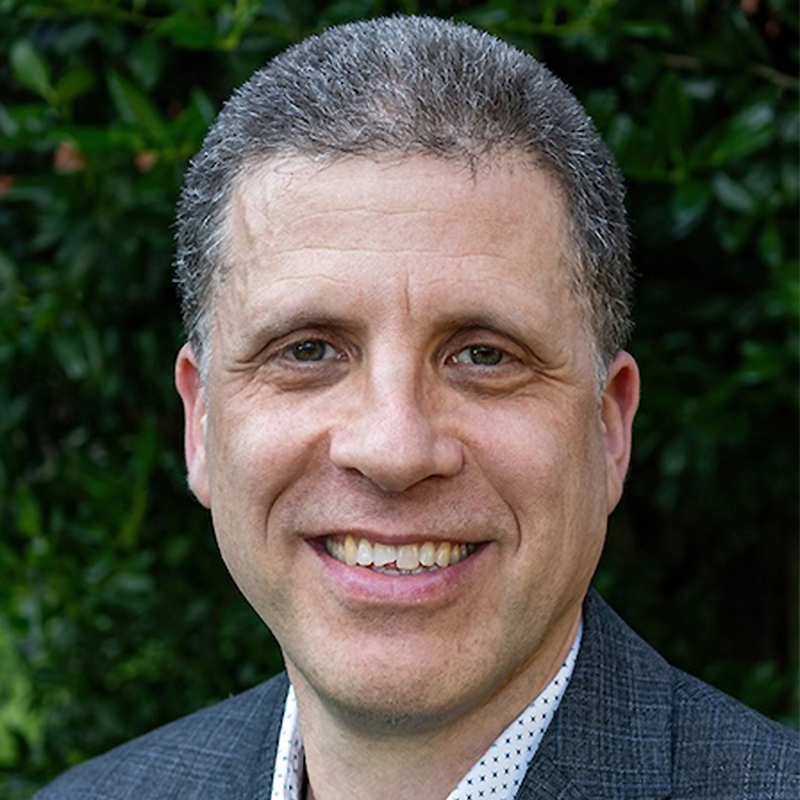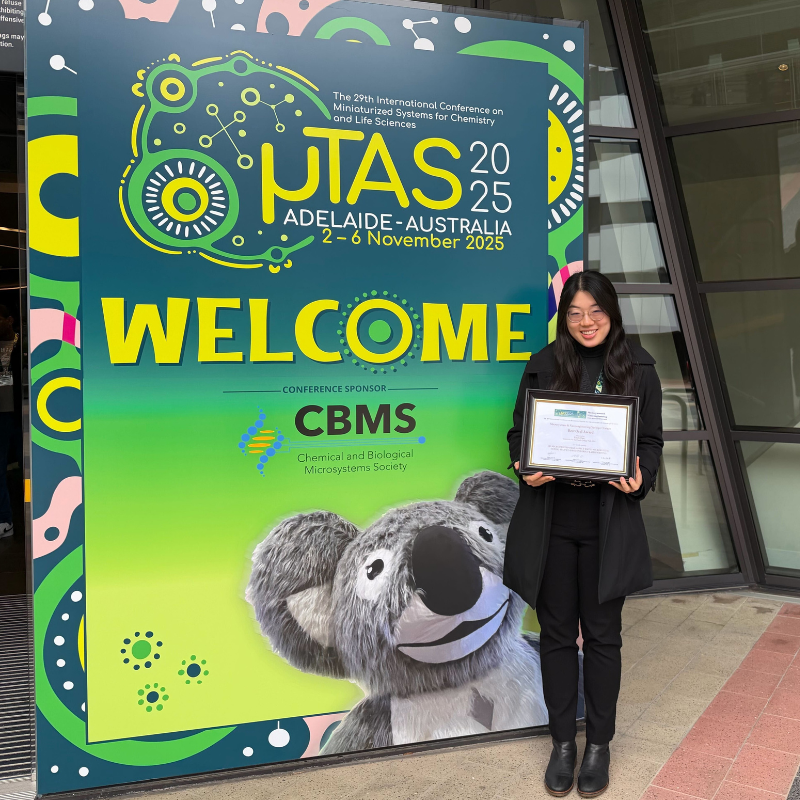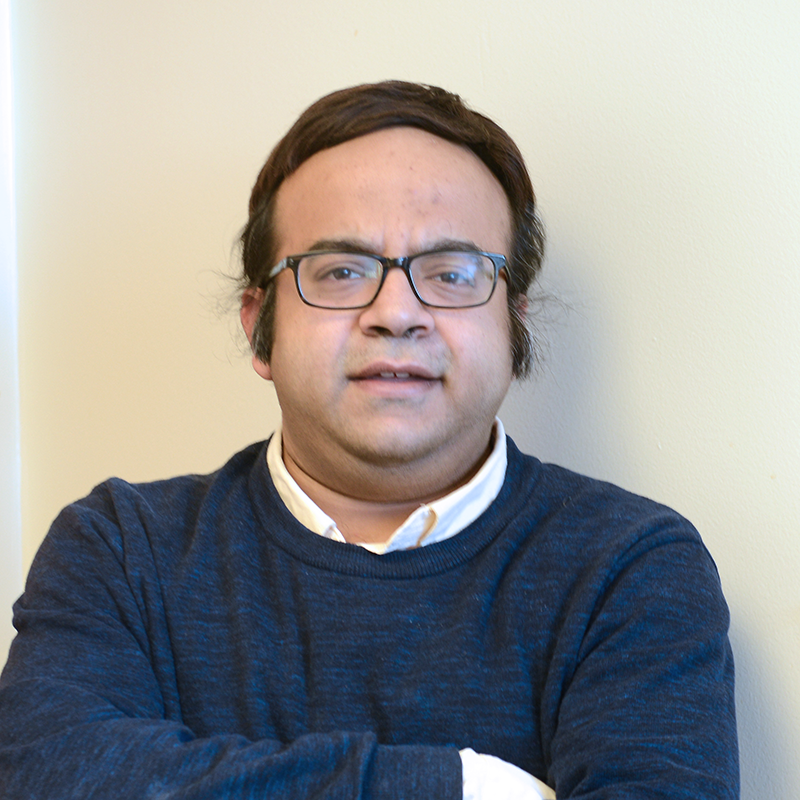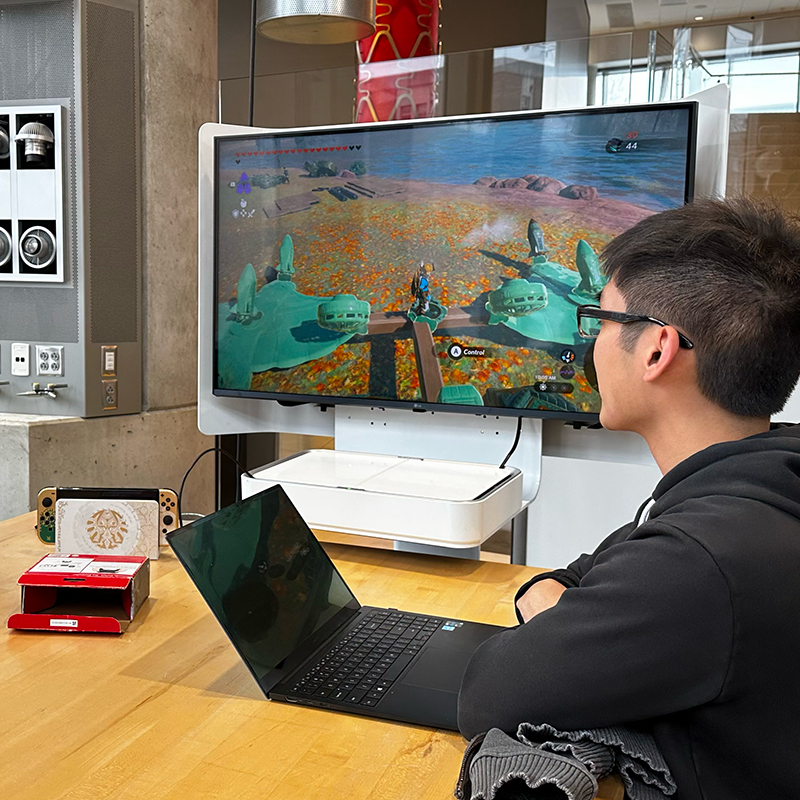News Story
Graduate Students Selected as Future Faculty Fellows
Seven Department of Mechanical Engineering graduate students have been named 2016-2017 A. James Clark School of Engineering Future Faculty Fellows. Twenty-four students were selected for this year’s program from throughout the Clark School. The Clark School Future Faculty program aims to help produce the great engineering teachers future generations of students will rely on.
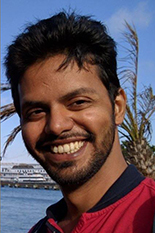
Faez Ahmed is a Ph.D. student studying with advisor Assistant Professor Mark Fuge. He research focuses on applying machine-learning techniques to online design communities. Currently, he is working to find diverse high quality set of design ideas to help inspire designers, predict success of submitted ideas using text analysis and incorporate diversity in weighed bipartite b-matching. Before moving to Maryland for his Ph.D., he worked in Australia as a Reliability Engineer for several years. His undergraduate and Master’s research mainly focused on problems of multi-objective optimization for path planning, cricket team selection and designing compliant mechanisms.
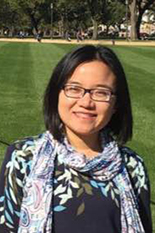
Yan Ding is a Ph.D. student in Fire Protection Engineering working with Associate Professor Stanislav Stoliarov. My research details a methodology to characterize the decomposition of a polymer blended with reactive flame retardants. Flame retardants as an additive to engineered plastics used in electric and electronic applications has greatly increased due to their improved fire resistance behavior. A quantitative understanding of the relation between thermal behavior and constituent composition is critical for the design of fire resistant blends and the predictions of ignition and fire growth. Ding’s resulting model consisted of a set of first- and second-order reactions that defined the kinetics, thermodynamics and heats of combustion of the gaseous pyrolyzate. This model was able to reproduce all previous experimental results and relate the results to material composition. A combination of this methodology with thermal transport parameters will yield a complete pyrolysis model capable of predicting the dynamics of burning and flame spread on these materials and their dependence on the flame retardant content.
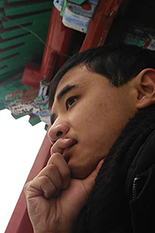
Xiaotian Ma works under Associate Professor Sarah Bergbreiter on a collaborative project studying impulsive mechanisms in biology and engineering. He researches how animals at different sizes are able to exceed their muscle limit to launch powerful motions and how this knowledge can be applied to robotic designs. His focus is on the latching and releasing of the system as the releasing moment of an impulsive system can determine its overall performance. A biological impulsive system can be “latched” by a large variety of mechanisms such as mechanical interlock, fluidic cohesions and even electrostatic interactions. These mechanisms have very different behaviors at different size scales and in different environments. Ma says “It is my great pleasure to work with so many excellent scientists in such a diverse field, and it is my honor to contribute with what I discover.”
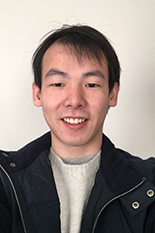
Jie Peng is a 3rd year Ph.D. student working with Associate Professor Peter Chung on heat transfer property of materials. His research topic specializes in the area of novel 2-D semiconductors. The size of modern electronic devices keeps shrinking down—even to nanoscale—with the typical size of transistors in computers and cellphones now being around a nanometer. He researches how heat dissipates in these “small” devices. Peng conducts numerical simulations to investigate thermal and electronic transport in 2D semiconductors with their atomic structural variation, and studies the dependence of thermal and electronic properties on the crystal's lattice structure, the building block for a solid. By performing molecular dynamics and density-functional theory, his goal is to discover a promising lattice structure of 2D semiconductors capable of dissipating heat efficiently while possessing excellent electronic conduction property.
Eliot Rudnick-Cohen is a Ph.D. student studying under Professor Shapour Azarm. He just completed his M.S. at Maryland this past spring with a research focus on the “Risk Based Multiobjective Path Planning and Design Optimization for Unmanned Aerial Vehicles.”
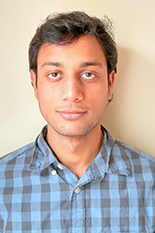 Saurabh Saxena is a Ph.D. student working under Professor Michael Pecht. His research is focused on failure analysis, reliability, health management and prognostics of lithium-ion batteries. As lithium-ion batteries are being in applications ranging from portable consumer electronics to mission critical defense and space systems, reliability and safety of these batteries has become increasingly important. Saurabh recently completed a long-term cycle life study that characterized and modeled Li-ion battery-capacity degradation behavior under different charge-discharge ranges. He is currently working on the development of physics-inspired accelerated degradation models for lithium-ion batteries that can be used to plan accelerated testing of batteries to reduce their required testing time and cost.
Saurabh Saxena is a Ph.D. student working under Professor Michael Pecht. His research is focused on failure analysis, reliability, health management and prognostics of lithium-ion batteries. As lithium-ion batteries are being in applications ranging from portable consumer electronics to mission critical defense and space systems, reliability and safety of these batteries has become increasingly important. Saurabh recently completed a long-term cycle life study that characterized and modeled Li-ion battery-capacity degradation behavior under different charge-discharge ranges. He is currently working on the development of physics-inspired accelerated degradation models for lithium-ion batteries that can be used to plan accelerated testing of batteries to reduce their required testing time and cost.
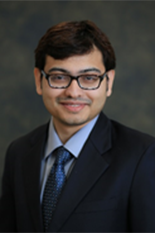 Shayandev Sinha is a Ph.D. student in the Soft Matter, Interfaces and Energy Lab (SMIEL) under working with advisor Assistant Professor Siddhartha Das. He is a member of the American Physical Society (APS) and the Materials Research Society (MRS). His research explores the role of surface charges in bio-adhesion and wetting. He also studies surface tension driven phenomenon in soft matter, which has led him to work on 3D printing of electronics. He studies development of Printed Hybrid Electronic components in replacing surface mount strategies in electronics. His work on water spreading on graphene was featured on an inside front cover of Physical Chemistry and Chemical Physics. In 2016, he was selected as an Outstanding Graduate Assistant and is the recipient of the Kulkarni Graduate Student Summer Research Fellowship by UMD’s Graduate School.
Shayandev Sinha is a Ph.D. student in the Soft Matter, Interfaces and Energy Lab (SMIEL) under working with advisor Assistant Professor Siddhartha Das. He is a member of the American Physical Society (APS) and the Materials Research Society (MRS). His research explores the role of surface charges in bio-adhesion and wetting. He also studies surface tension driven phenomenon in soft matter, which has led him to work on 3D printing of electronics. He studies development of Printed Hybrid Electronic components in replacing surface mount strategies in electronics. His work on water spreading on graphene was featured on an inside front cover of Physical Chemistry and Chemical Physics. In 2016, he was selected as an Outstanding Graduate Assistant and is the recipient of the Kulkarni Graduate Student Summer Research Fellowship by UMD’s Graduate School.
Program members take three one-credit training seminars, a teaching practicum and a research mentoring practicum. The three main objectives are to increase the number of qualified future teachers that will graduate from the Clark School, prepare selected doctoral students to achieve career-long success in the academic world as both teachers and researchers, and to place selected students in leading institutions and continue to partner with the University of Maryland.
Published March 7, 2017





